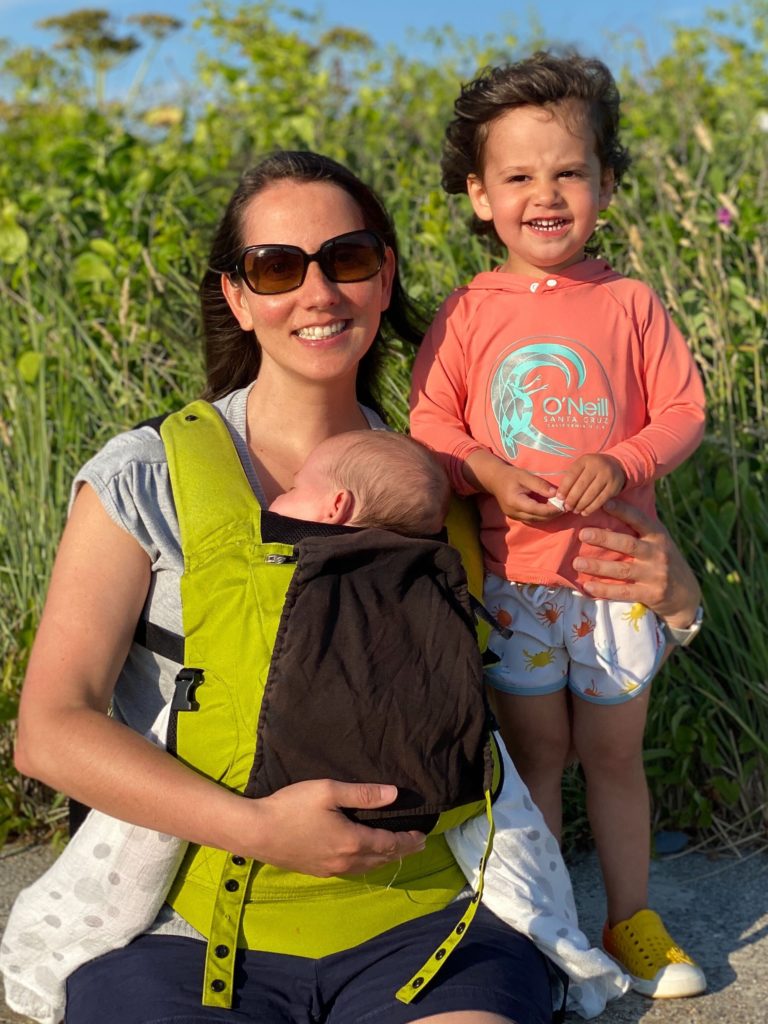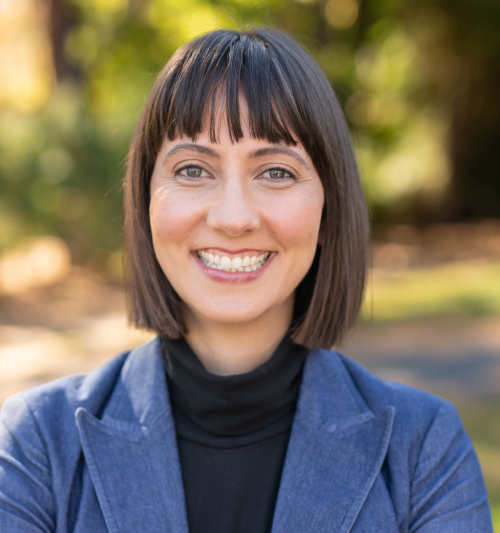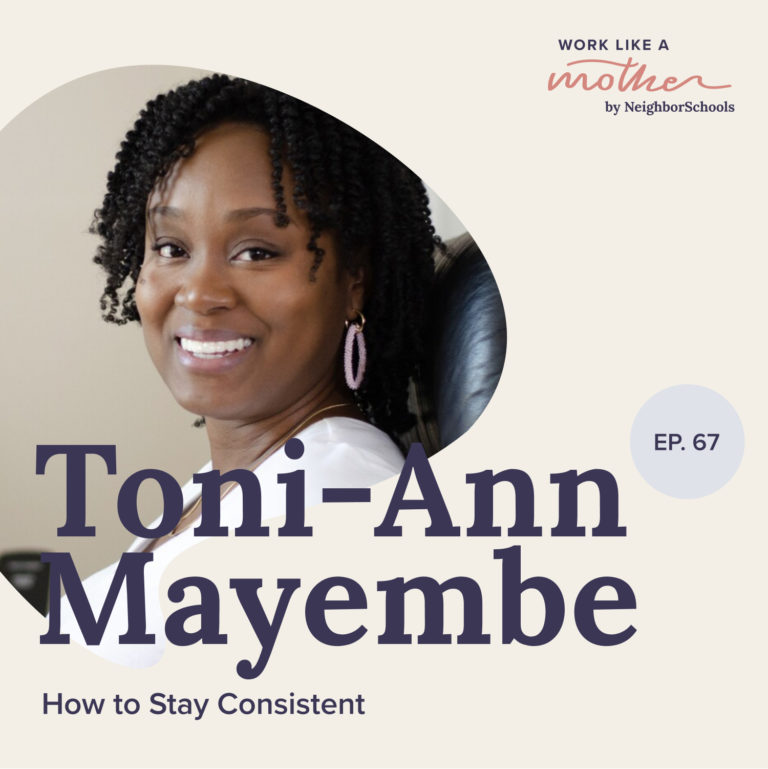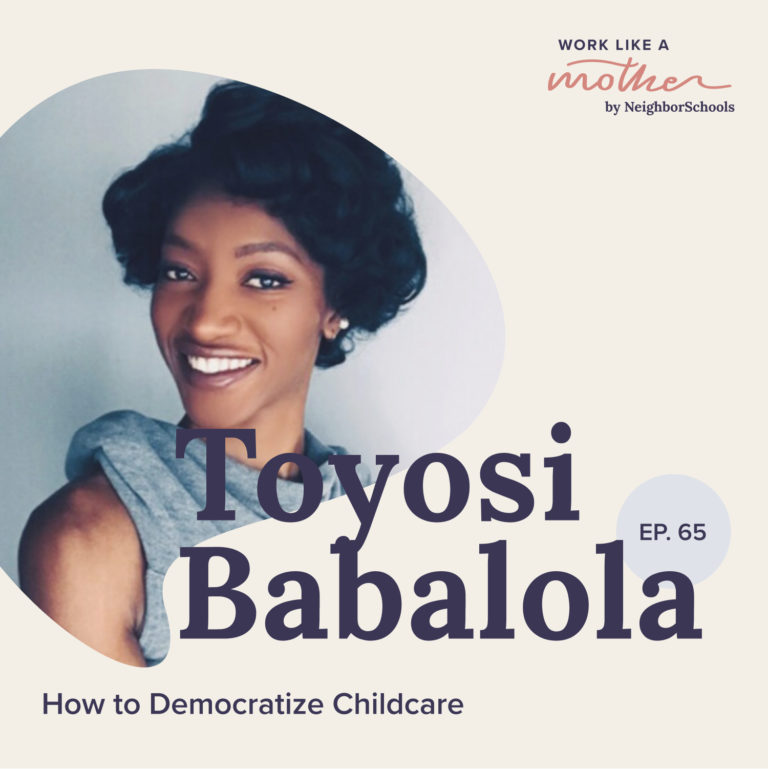When I was about six years old, my mom started working the night shift as a nurse. I remember I didn’t take it very well. Before she left, she would tuck me into bed at night and read me a story, but it wasn’t enough. When she got up to leave, I cried, I begged, I screamed. All I wanted was her. In the morning, I’d wake up and she’d just be getting home from working all night. She’d make me breakfast and tell me stories about her patients and then she’d play My Little Ponies until I went to school. Now that I’m a mom, I see these memories so differently. I see a strong woman juggling a job she loved and a family she cherished. I imagine how much guilt she must have felt walking out the door. I wonder how exhausted she was when she put on a smile to play with me every morning. But most of all, I see an incredible role model who quietly and gently taught me that all along, I had the strength, love and passion to be a working mom too and I’ll always be grateful for that.
Watch + Listen to the whole conversation:
In her groundbreaking debut The Three Mothers, scholar Anna Malaika Tubbs celebrates Black motherhood by telling the story of the women who shaped three civil rights icons. Anna’s book shines a light on the mothers of Martin Luther King, Malcom X and James Baldwin as activists- fighting racism and inequality and as humans- raising black boys with joy and resilience. Throughout this journey of researching and writing the book, Anna herself became a mom. And she is a force. Anna connects to these three women through their shared experience as Black women, as mothers and as humans.
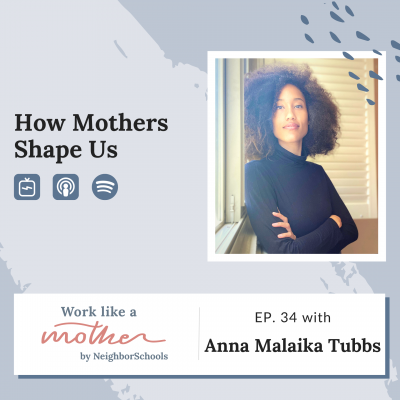
How should we combat society’s perception of mothers?
I think so many moms feel this need to come back after giving birth. We act as if we are super human or as if we don’t need the same attention that other people do or that we don’t need to be celebrated or given credit. That is something I want to completely take apart and take down as a woman and as a mother.
How are you inspired by the mothers in your book and in your life?
Especially when I think about communities of color and groups who have been marginalized, it’s important for all of us who have come after them to know how they not only survived but found joy in their lives. We want to humanize them in that way as well. And so as a mother, it’s been very important to me that my son knows not only who I am as a mother, but who I am as a person. My partner and I speak about that the way we are showing ourselves to our child. It’s important not only for our own happiness, but I think for his as well. I think he’ll have a better understanding of humanity. I really want my son to know that ‘my mom had a really big influence on my life. My mom is someone who is powerful and who is strong. She formed me as a person in addition to giving birth to me.’ And so I think that is something that I carry with me each step of the way.
I loved the last line in your mother article where you say-
“mothers epitomize power, strength, and influence and it is time they are treated as such”
What inspired you to share those words?
When I told many of my friends we were trying to start a family, they were so worried. They were like- oh my gosh. It’s too early. They were worried I would lose my identity and I would not be seen as my own person anymore. A lot of their fears came from how society mistreats and underappreciates mothers. My friends’ reactions were really shocking and were also very sad to me.
In my experience I had a mom who was extremely strong and powerful, but was very much a caretaker. She showed me how both these feminine and masculine qualities were influential, powerful, and strong. She showed me you could take from both to create your own identity as a mother and so that was really influential for me.
I was also studying these three women for my book, researching a lot around liberatory parenting and learning about the kind, powerful role of motherhood- especially in Black communities. I wanted more people to have the perspective that I did. I knew I wasn’t going to be pushed aside no matter how much some people tried.
I want to contribute to this conversation where we stop thinking about mothers as if we’re some kind of second-class citizen- where our role is not respected with the respect that it deserves. I want to help my friends through their own fear and anxiety that we don’t just have to accept that our identity is going to be erased or that people aren’t going to see us anymore when we become mothers. But that motherhood can be a part of our identity if we want it to be, however it doesn’t have to make us a completely different person. We don’t have to lose all the things we cared about before we became mothers and I saw this really clearly in Alberta, Berdis, and Louise.
What is the importance of community in raising children?
Community is so important in raising children. I think about Ghana. My dad is Ghanian and we visit at least once a year. When we say ‘it takes a village to raise a child’ that’s not a saying. In Ghana and many parts of the world, everybody participates and helps so the burden doesn’t just fall on one person. It’s a very Western practice to think that we need to raise children on our own. It puts a lot of pressure on that individual. It’s never about what supports are in place for all of us to be able to achieve the American dream and have a community of loved ones around us.
A lot of moms in the US feel like there’s something wrong if they say ‘Hey Mom or mom-in-law, can you take care of my child for the day because I just want to sleep, or I have some work that I need to get done.’ It doesn’t even matter what the reason is. We feel a sense of obligation that we should be able to take care of our own children. However, it’s so liberating to say ‘this is our child. Let’s all contribute to this child so that I’m not running on fumes. ‘
Bridget Garsh
Co-founder & COO
Bridget is mom to two little boys, Hudson and Brooks, and a champion of working moms everywhere. NeighborSchools itself was borne out of Bridget’s challenge to find high-quality yet affordable child care, and the realization that so many parents struggle with these same issues every day.
Read more from Bridget, follow her on IG, and check out her new series, Work Like a Mother.
